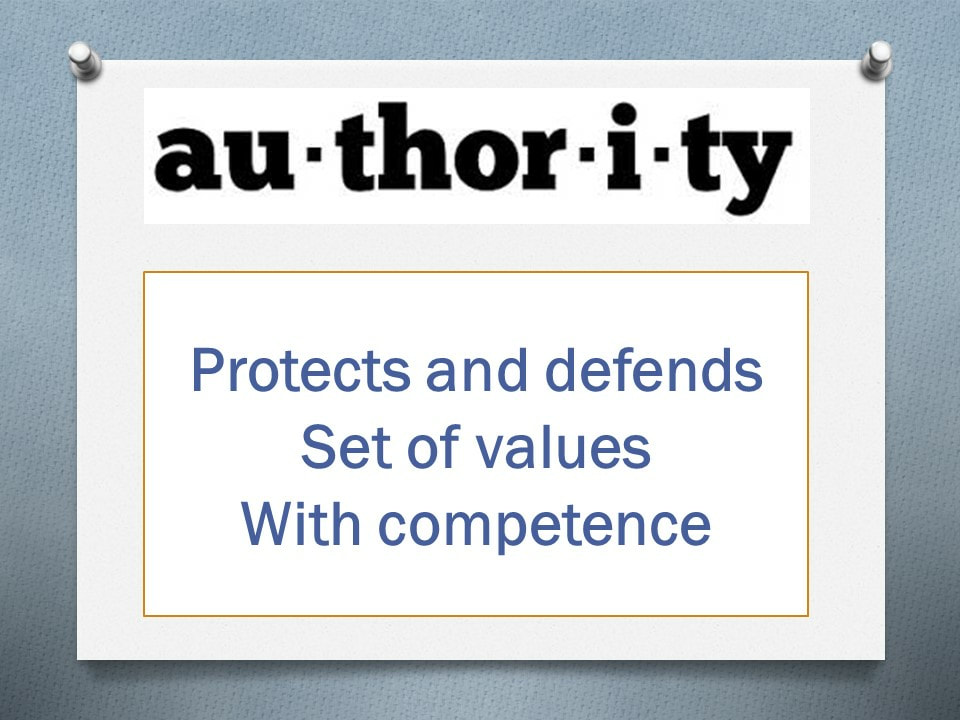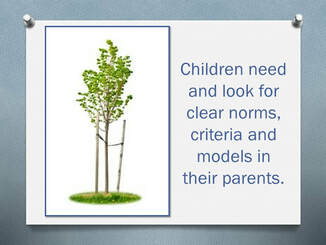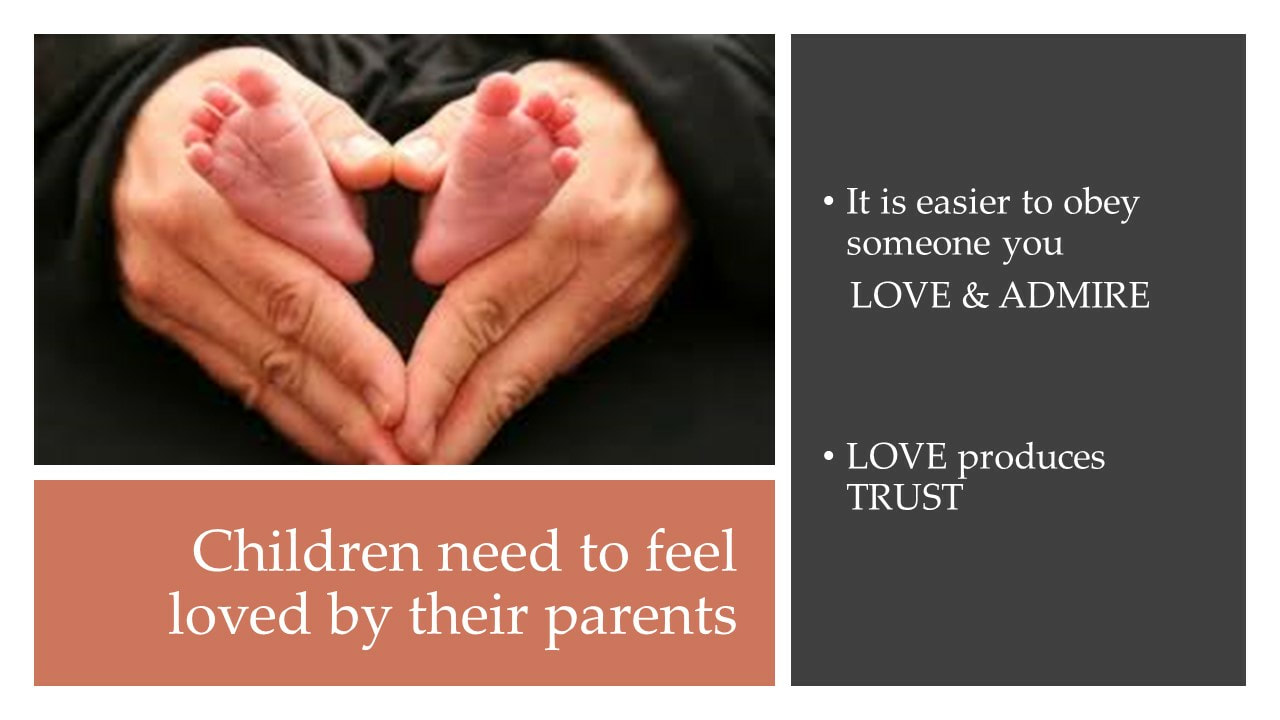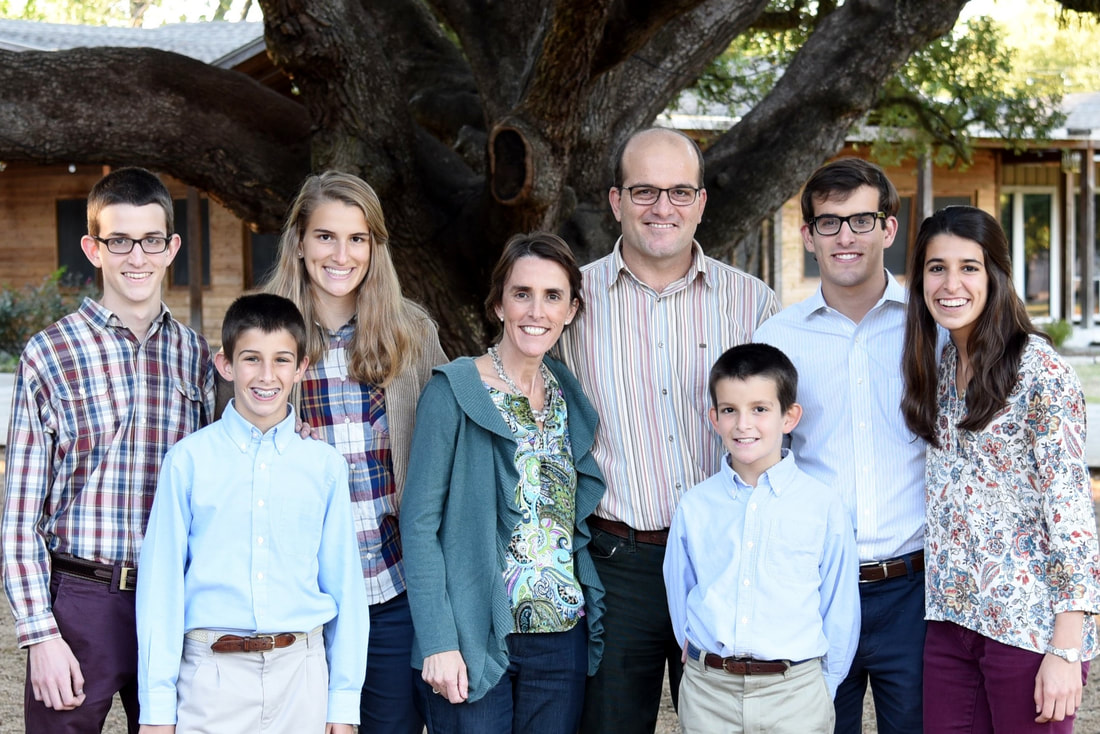 We know that the exercise of parental authority isn't always easy. Following the British educator, David Isaacs, we understand that a person has authority when he or she protects and defends a set of values with competence. He has authority over me if I appreciate those same values and recognize his or her competence in that subject. If we choose for example the value: health: we go to a doctor that has studied medicine and he defends the value health with competence and he is an "authority" for me in this area. The authority that we have with our children lies precisely in the values that we protect and defend with competence. It will be a good exercise to: - reflect what are the values that we are effectively living. - if our actions, our decisions are in accord with the end that we have set for us and our children. If we live “generosity, understanding and sincerity” we have authority with our children and we guide them in this direction. To educate is this process of guiding toward an authorship: that is, that our children become capable of protecting and defending some values with competence.  In fact, etymologically, the word “authority" comes from the Latin verb augere, which means “to make grow," “to develop.“ (Auctoritas: power and right to command. Auctor: the one who exercises this podwe and right.) When you grow a tree, it tends to grow upward, looking for light and becoming part of the environment. But in the process of growing, it will need, during a certain period of time, to be held by some stakes so that it grows straight and its roots settle in the ground, reaching its maximum potential. The tree that grows crooked will never straighten its trunk. The exercise of authority by us, the parents, is like the rod, the picket, placed by the newly planted tree that helps it grow straight. We are the rods that help prevent detours o correct them if they appear. We are the support and the hope of our children while we teach them how to support themselves. Children need and look for clear norms, criteria and models in their parents. We exercise authority precisely because we love our children and they need to feel loved. A love that is true, not soft or overprotective or possessive. The message "it is good that you exist" is conveyed in different ways: our children need to feel we are interested in his or her things, that we spend time with him or her, that we talk with him or her. Compliment them, give them: hugs, pats, winks...
Love is a powerful bond. Everyone finds it easier to obey someone that they love and admire. Love produces at the same time, trust. So the child completely trusts that, what his parents are asking, is for his own good. It could go against his laziness, his comfort or his playtime, but he knows that what they are asking of him, benefits him. Have a positive outlook when raising your kids!
0 Comments
|
AuthorPilar Caranti holds a Masters in Psychology from the Catholic University of Argentina. She is a Certified Professional Life Coach. Family topics and the education of children are her passion. She has given many lectures on parenting topics like: forming the will of our children, authority, education of leisure, pornography, etc. Archives
June 2019
|




